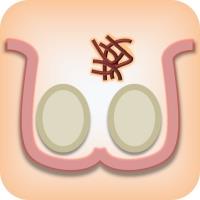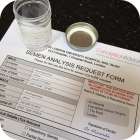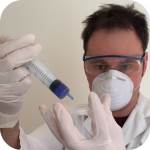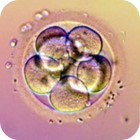What Are Varicoceles?

A varicocele is a vein in the scrotum (the skin sack that the testicles are in) that has become enlarged and swollen. They are also referred to as ‘Varicose Veins of the Testicles’ and they can reduce or stop sperm production by either:
- Preventing blood flowing properly around the testicles, which reduces oxygen and nutrients, resulting in slowing or stopping sperm production
- Blocking the tiny tubes that the sperm travel along preventing the sperm from being ejaculated, or
- Causing too much heat around the testicles, slowing or stopping sperm production
You can have more than one varicocele (one or more varicose veins) present in your scrotum.
What Are the Chances of Having Varicoceles?
Approximately 15% of men have varicoceles, which seems high, but varicoceles do not always cause infertility. However, roughly 35% of men being tested for infertility do have varicoceles, though these may not be the cause of the infertility.
Confused? To put it another way; you have a 15% chance of having a varicocele and if you do have one, you are at a greater risk of infertility.
Varicocele Symptoms
Varicoceles are painless, so you may not notice them. They also vary in size and some cannot be seen, though they are typically described as looking like a bag of dark red worms under the skin of the scrotum.
If none are visible, your best bet to find them is to feel for a stringy lump in your scrotum when you have been standing for a while. The reason why you should stand before checking for them is that if you have been sitting or lying down, the blood can flow out of them making them more difficult to find.
I Have Discovered a Lump in My Scrotum
You’ve found an unidentified lump in your scrotum? Immediately make an appointment to see your doctor as soon as possible, as it might be something more serious than just varicoceles.
If it turns out that your doctor agrees that you may have varicoceles and you are trying to conceive, they will refer you for a simple semen analysis test. This test will identify if there are too few or no sperm present, which is an indication that the varicocele might be interfering with your fertility.
Varicocele Treatment
If you do have a varicocele, most can be cured by simple surgery which can remove or repair them quite easily. If they are not causing any problems, it is often recommended to just leave them alone.
In more severe cases, where the varicoceles have caused permanent damage, assistive reproduction techniques like in-vitro fertilisation are needed to help couples have a baby.
Varicocele Associated Problems
If you have, or think you may have Varicoceles, you may also want to read up on the following conditions that can be related:
- Ejaculatory Duct Obstruction – Varicoceles can put pressure on the delicate tubes that sperm travel along. This may prevent sperm from mixing with semen and exiting the body during ejaculation.
- Immune Response to Sperm – Varicoceles can cause sperm to be trapped in the testicles by blocking them in. Over time, the immune system may come to see the trapped sperm as foreign invaders which it needs to destroy
Links to Popular Related Pages








